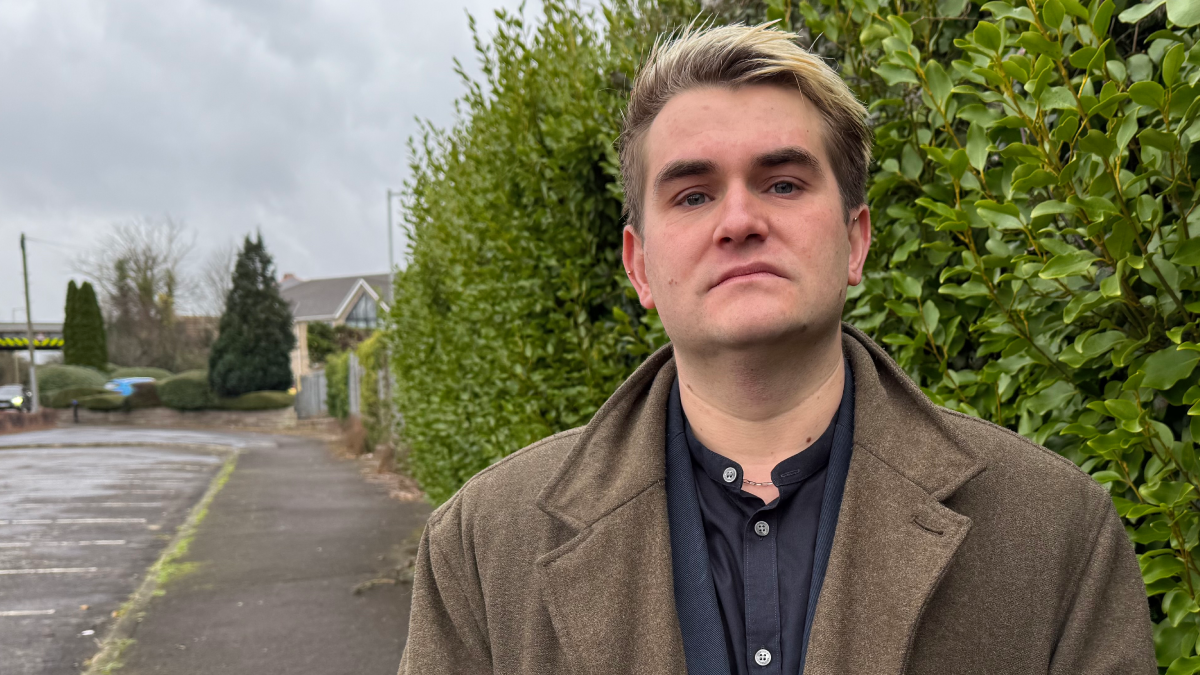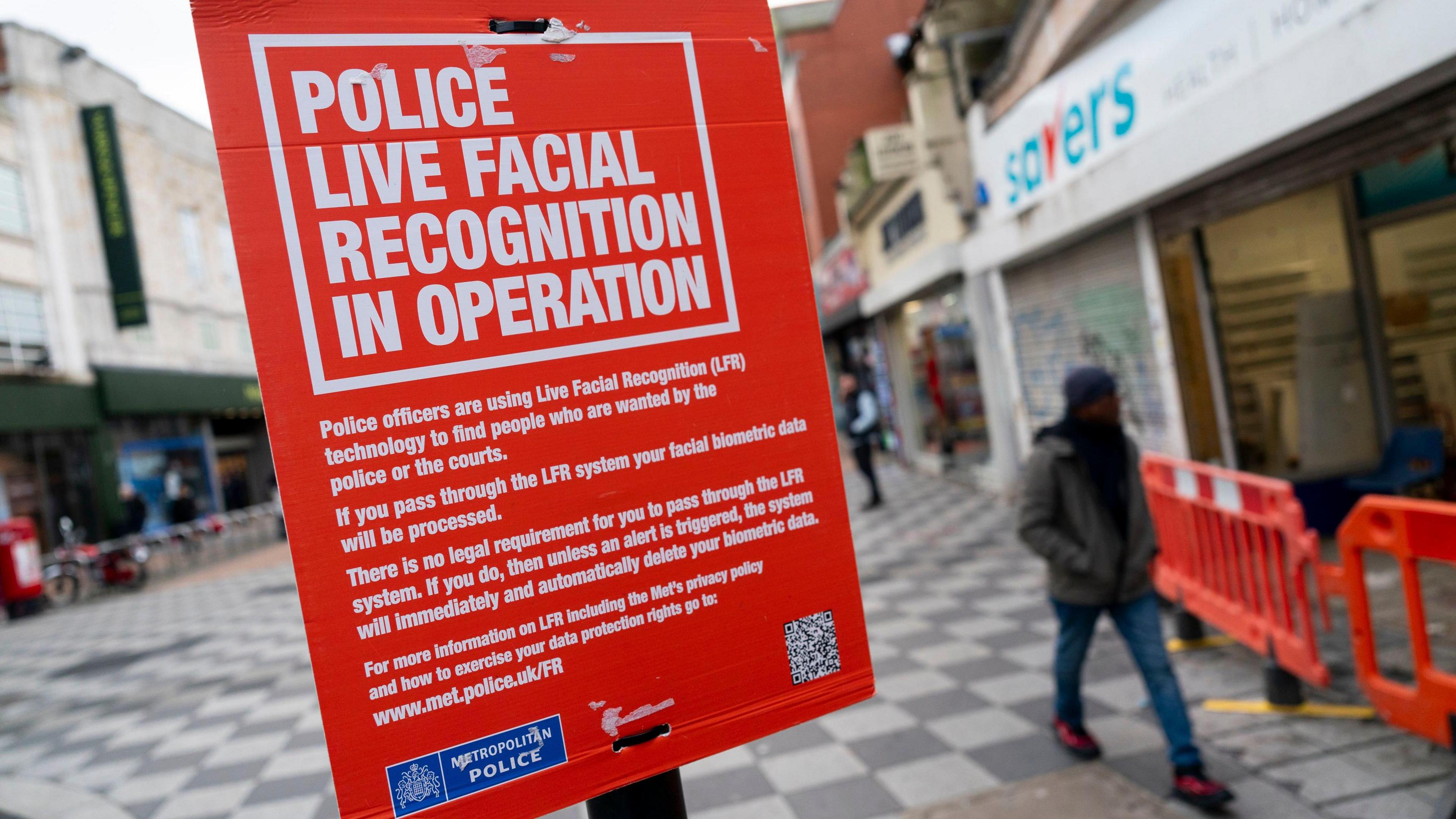Police unit blocking FOI requests U-turns on promised reforms

The unit previously advised forces to refuse to confirm if they used a facial recognition website
- Published
A national policing unit that was criticised for telling local forces to block the release of information under transparency laws has U-turned on a pledge to reform the way it works.
The central referral unit for the National Police Chiefs' Council had said it would stop recording the original requester's identity when advising forces on how to answer Freedom of Information (FOI) requests from the public.
It followed a BBC investigation, which suggested the unit was not adhering to the spirit of transparency laws. The laws include an applicant blind principle, under which everyone should receive the same level and quality of response, whether it is their first request or they use the act regularly.
The promised reforms have now been abandoned after further consultation, prompting campaigners to call for an external investigation.
Oliver Feeley-Sprague, Amnesty International UK's military, security and police director, said the unit's involvement in blocking FOI requests was a "deeply troubling practice that must be halted immediately, pending a thorough investigation by the Information Commissioner's Office (ICO)".
The unit had previously said it would stop recording requester names shared by forces from March 2025, in a bid to "uphold the highest standards of FOI practice".
However, the BBC can reveal the names of requesters were recorded in 97% of cases where the unit was consulted by local forces between March and June.
Louise Crow is the chief executive of mySociety, the not-for-profit organisation that set up the WhatDoTheyKnow website to help people submit FOI requests.
"This is just a question of trust and accountability," she said. "We do think an authority should do what it has committed to doing - or provide very good reasons not to."
'Within the law'
The unit said it had reversed its decision on reforming its practices after "further consultation with FOI representatives from all forces to determine what impact this might have".
Ashleigh Beney, the head of the unit, said she was "comfortable this was transparent and within legislation, allowing the unit to provide relevant and accurate advice".
She said requesters' details were recorded to help check if other forces had also asked for advice on the same request and to spot repeat requests, as well as to determine if any requests were vexatious.
Those details helped them consider the purposes for which information could be used if published, and the possible impact on public health and safety, she said, adding the unit's advice was otherwise provided following the applicant blind principle.

Louise Crow says knowing less about who made a request reduces the risk of bias
Ms Crow said: "This [unit's] practice places more emphasis on what information will be used for, rather than whether any of the material should have one of the exemptions applied of the FOI Act, which is not a desirable state of affairs.
"The act of whistleblowing is already risky; having a name passed around makes the risk of leaks more acute. Knowledge that the request-maker is a journalist or campaigner may inappropriately add the fear of embarrassment to the authority as a consideration in the weighing up process."
The BBC previously reported how the unit had been recording requesters' names and whether they were members of the media. Staff had discussed internally when responses would "likely attract media attention".
The unit had also advised forces to retract information they had previously released on topics including the use of banned surveillance software, external and the spread of super-strength drugs.
Subsequent reporting by The Detail, external revealed the unit had advised the Police Service of Northern Ireland to withhold the release of information under FOI about its use of Cellebrite phone-hacking technology on a journalist's phone - even though some information was already public.
Democracy for Sale then reported on the unit's advice to suppress information, external about police use of US technology company Palantir, despite a policing covenant promising "maximum transparency by default" for AI use.
Mr Feeley-Sprague said: "Anyone requesting information from their local police force would not reasonably expect their query - or personal details - to be passed to a secretive central policing unit whose apparent role is to help police avoid answering questions by leaning on sweeping and overly broad exemptions.
"This looks less like a freedom of information system and more like a freedom from scrutiny service, designed to shield police from accountability, particularly when the identity of the requester is known."
Mrs Beney said the identity of requesters being known to the unit's staff had no impact on how responses were handled and the risk of potential bias was minimal.
She also said the unit had offered the ICO a voluntary inspection, but it had declined.
An ICO spokesperson did not answer why that offer was declined, but said: "We have not seen evidence to date that would cause us concern with the handling of information requests by the National Police Chiefs' Council case review unit but we will continue to consider and review concerns raised."
What does Freedom of Information cover?
More than 100,000 public authorities working across the UK are subject to FOI laws, external which first took effect in January 2005.
Requesters can apply to see recorded information held by those authorities, including documents, letters, emails, photographs and sound or video recordings.
It is presumed each request should lead to information being disclosed, unless a legal exemption applies.
In 2022, an independent review found poor practice by a government unit that advised other departments how to respond to FOI requests. It recommended the unit was replaced, external.
The so-called Clearing House was part of the Cabinet Office. It was alleged to have profiled journalists and treated their FOI requests inappropriately.
The review rejected its approach of circulating the names of requesters who had asked the same questions of several departments – a so-called round robin requester – to help it coordinate similar responses. The government said it would pilot a new system "immediately".
Three years on, the BBC's reporting showed practices similar to those adopted by the Clearing House were still being used by the central referral unit for the National Police Chiefs' Council.

Big Brother Watch's Jake Hurfurt has complained to the ICO about the CRU's work
Jake Hurfurt, the head of research and investigations at campaign group Big Brother Watch, has raised concerns in a complaint and a request to investigate the unit further, addressed by letter to the Information Commissioner personally.
His concerns included:
Forces breaching legal deadlines for FOI responses while awaiting unit advice
Similarities between the unit and the Clearing House in their recording of requesters' names
The unit citing reputational damage to police forces in its previous FOI advice, which Mr Hurfurt said was not a relevant consideration within the law
"There is a real danger that linking a name to a request could have an impact on the response, even unintentionally, especially when there is an obvious link to a frequent FOI requester, such as a journalist or campaign group," Mr Hurfurt said.
The ICO spokesperson said: "There is nothing in FOI law that prevents public bodies like the police seeking advice from a central body on the correct interpretation of the law in complex cases.
"It is important, however, that any such function does not prevent public authorities from complying with statutory deadlines, or any other requirements, such as the requestor blind principle."
Phil Brickell, Labour MP for Bolton West, said if Mr Hurfurt's criticisms were proven, it would undermine confidence in policing.
"It is bad enough that this principle was not being observed in the first place, even worse that the NPCC appears to have reneged on its subsequent commitment to do so," he said.
"I urge the NPCC to follow through with what they have promised without further delay, so as not to detract or distract from the crucial work being done by their frontline colleagues."
Additional data journalism: Paul Bradshaw
More about this story
The Shared Data Unit makes data journalism available to news organisations across the media industry, as part of a partnership between the BBC and the News Media Association.
Read more about the Local News Partnerships here.
Related topics
- Published6 March

- Published9 February 2021

- Published4 September
